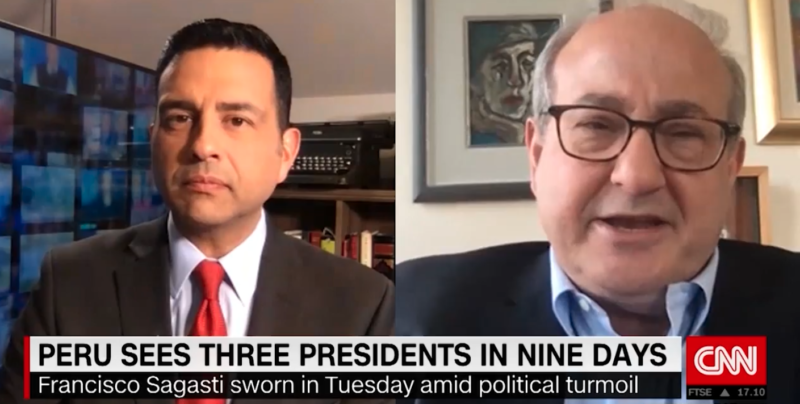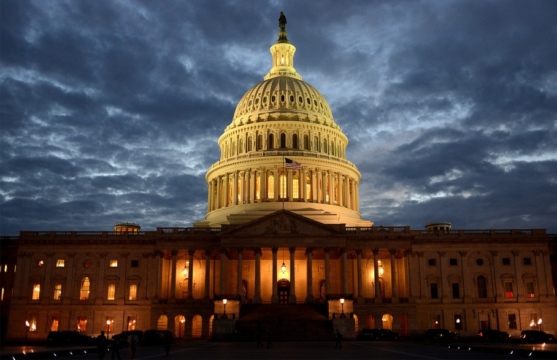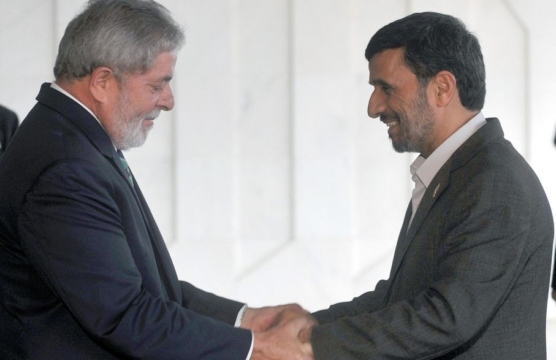What Do the US Election Results Mean for Latin America?
What do the election results mean for hemispheric policy and foreign relations?
Michael Shifter, president of the Inter-American Dialogue, spoke with Rafael Romo of CNN about the ongoing crisis in Peru and the upcoming presidential elections taking place early next year. Last week, Congress impeached Martin Vízcarra, who was then replaced by the head of Congress, Manuel Merino. Many Peruvians saw the impeachment vote as a power grab and showed their anger by the thousands in the streets of Lima. Five days after, amidst the death of protesters, Merino resigned and a new president, Francisco Sagasti, was chosen by congress.
Question (Q): Is he [Sagasti] a radical?
Answer (A): No, by any means, he is a centrist, he is committed to democracy, he is with a party called the "Purple Party" and he was just elected a member of congress last March.
Q: What is the root cause of this, why is this happening?
A: [Peru] is a country with very weak political institutions, with extremely high levels of mistrust according to all the polls that we have. More so than other countries, this is not obviously unique to Peru, but it is worse.
[...]
What do the election results mean for hemispheric policy and foreign relations?
A bill pending in the US Congress would require money transmitters to verify their customers’ immigration status. Is this measure good policy?
Iran’s influence in the region, even in the handful of countries where it has been most active, has only declined in recent years.
 CNN
CNN

